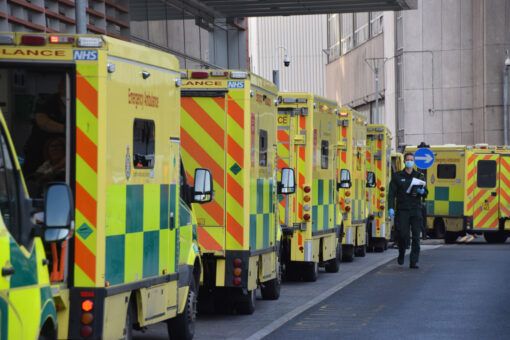
The NHS Long Term Plan was published in January 2019 with input from frontline staff, patient groups, and national experts. A lot has changed over the last three years, including a commitment by the NHS to reach carbon net zero by 2040 and 2045. This week, we have written to NHS England, urging that this commitment be made central to the NHS Long Term Plan refresh currently underway.
Evidence has shown that nine in ten staff support the NHS net zero ambition. This is because we recognise the threat that the planetary crisis poses to the health of our patients, families, colleagues, and communities. Although many staff are tired after the pandemic, we believe that working to mitigate and adapt to the planetary crisis is work that will both inspire staff and help to alleviate the long term pressures posed by the health burden of climate change.
The plan to reach net zero by 2040 and 2045 is ambitious, but at the same time success in achieving these targets is essential for the sustainability of the health service and the UK delivering its climate commitments. Success will be achieved only if the commitment to net zero is included in every part of the Long Term Plan and every part of the service with strong governance arrangements. This will require each part of the service to be sufficiently resourced and funded to make the commitments a reality.
We know that there are many other pressures on the service, including workforce, safety, and the backlog, but the threat from the planetary crisis is so important and urgent that it needs to be the number one priority. As some of our members say, “No planet, no NHS.”
The previous Long Term Plan recognised that the NHS needs transformation to be environmentally, socially, and financially sustainable. We believe there needs to be much more emphasis on health and prevention rather than sickness; communities and community services rather than hospitals; and patients rather than professionals. Some aspects of this transformation have been mooted since the NHS began and have been hard to achieve when resources have been consumed by treating sickness in hospitals rather than focusing on wellbeing, prevention, and community services.
An emphasis on responding to the planetary crisis, which increasingly the public and the NHS workforce recognise as the major threat to global health and even human survival, may be the way to encourage the transformation. Importantly, we know that the changes we need to make as a country and as individuals to mitigate and adapt to the planetary crisis are good for health.
The Alliance will do all it can to support the Greener NHS plan, and in particular we have established and funded a net zero surgery working party that will produce evidence-based plans on how surgical teams can achieve net zero and then work to encourage their implementation. All the surgical and nursing colleges are included in the working party, and the thinking behind the work is that surgical teams are best placed to encourage other surgical teams to reach net-zero.
If this project is successful, we will extend it to other areas that affect many of our members—for example, primary care and end-of-life care.
